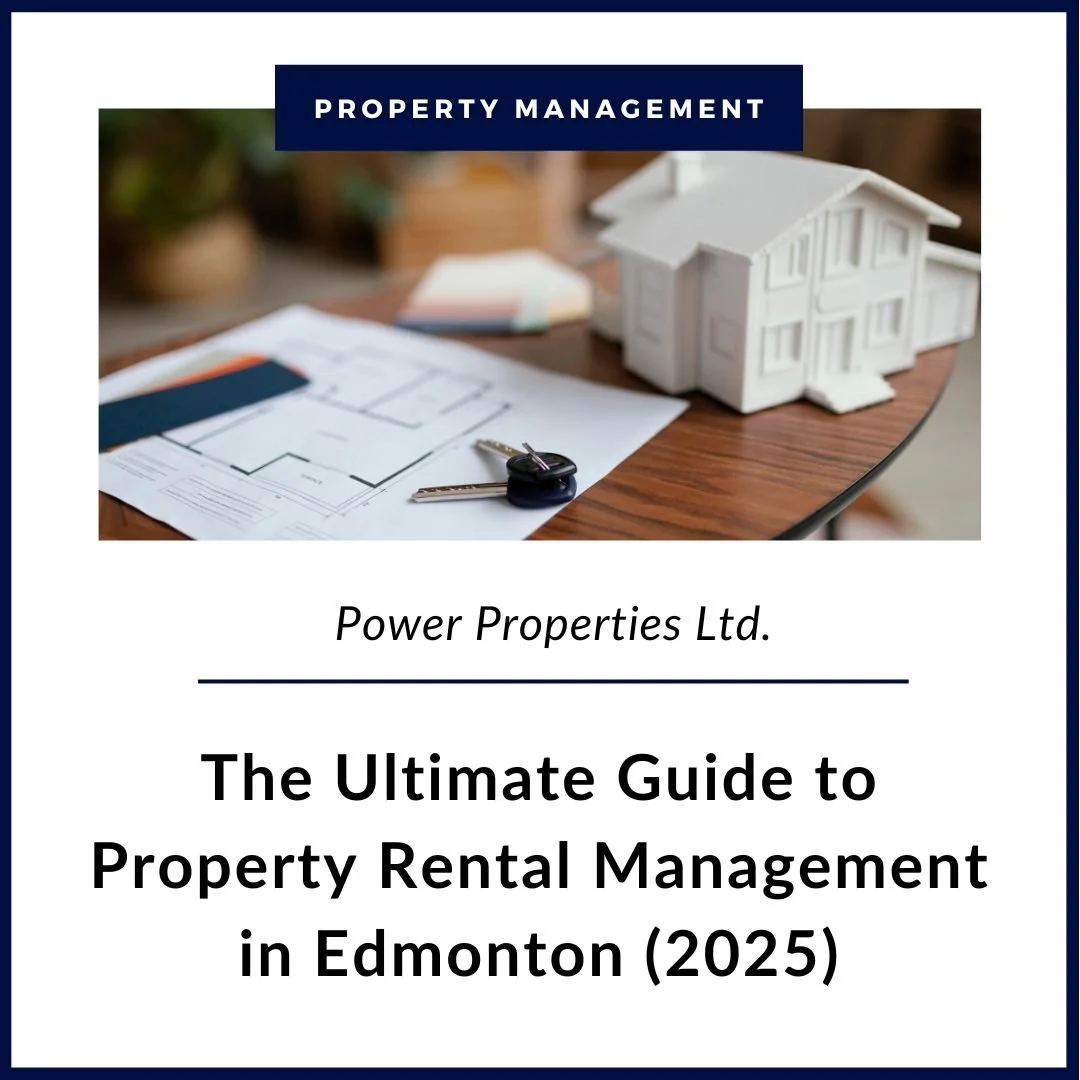How to Screen a Tenant in 3 Steps
Written by Jamie Palmer, President and Broker of Power Properties
One of the key functions you hire Power Properties for is tenant screening, but how do we do this? All of our tenants go through a rigorous three-stage, review, before being approved as a tenant. AI, the Property Manager’s Assistant and the Property Manager all play a role in evaluating the suitability of our tenants.
Step 1: Pre-screening with AI
As soon as a prospective tenant makes contact with Power Properties, AI begins the screening process. It starts out with open-ended questions like “ tell me about yourself”, “tell me about who’s living with you”; we try to avoid direct “yes” and “no” questions like “do you smoke” or “do you have pets” as these are easy to lie to. We will use questions like “how many people smoke outside” which tends to imply that smoking outside is permitted, so they are more likely to answer honestly. If they indicate that someone smokes outside, the process stops right there as they are not suitable. All our tenants must earn three times the rent as a minimum household income. Once the AI-bot determines that the tenant has the potential to rent the property it will provide a link to a calendar that is synced to the Property Manager’s calendar so there’s no telephone/texting tag, the tenant can book the showing easily right then and there.
Step 2: The Showing
When the Property Manager meets the tenants, they will undertake “detective work” for lack of a better term. They lean in a little closer when shaking hands to smell, do the tenants smell like smoke, or just plain old smell; do they have pet hair on their pant cuffs or coat tails? If the tenant likes the property they can then complete our online application.
Step 3: The Application
The application goes to the office, and the Property Manager or their assistant starts the background check.
Requirement 1: Employment Confirmation
We contact the tenant’s employer and verify their employment and their income; we again ask a lot of open-ended questions. One question we always ask is “would you rent your house to them”. As you can imagine, most employers will say yes, but the tone of their voice gives us all the information we need. You can confirm their income various ways. The most straightforward way is asking their employer or collecting their last 2 months of paystubs. If they are new to the job, this can also be confirmed with an employment letter. If they are self-employed, you can confirm their general income by looking at their T4 from the previous year.
Requirement 2: Landlord Reference
We contact the tenant’s current landlord; if it is another management company, most of us will call a spade a spade and let the other company know if a tenant is not suitable. If it is a private home, we actually pull the title on the house so we can verify that the person we are talking to is in fact the landlord and not a false reference. Once again open-ended questions and purposeful silence will ensure the landlord gives us the information we are looking for. The question we always ask landlords is “how are their pets”, not “do they have pets”, but “how are their pets”. This way they assume you know about any pets they may have, and they will tell you about them.
Requirement 3: Credit Report
Finally, the assistant pulls a full credit report. This will give us a numerical score as to their overall creditworthiness, but more importantly, it gives us a list of all their credit instruments; every line of credit, credit card, car lease, cell phone account etc. is on there with the balance outstanding and the monthly payments; so we can very quickly add up their monthly debt service and make sure they can still afford the rent. The credit report also shows us the last three addresses the tenant has lived at, so we can match them to the information on the application. If a tenant is in the process of being evicted, they will often use their previous landlord rather than their current landlord as a reference for obvious reasons. The mismatched address will expose this. If they are new to Canada, they may not have a credit score. In these cases, it is wise to collect 3-6 months of prepaid rent upfront. Ensure the collected rent is allocated for the last months of their lease, ensuring that they will be motivated to stay the entire fixed term.
The Decision
Once all this information is compiled the application goes to the Property Manager, who will make the final decision as to whether to approve the tenant. The Property Managers are paid a percentage of the rent, so the more properties they manage the more money they make. Accordingly, they are highly motivated to select quality tenants as they take up less time than marginal ones.
What does all this mean to you? It means you are getting thoroughly vetted tenants who are going to meet their financial obligations, and will be less likely to damage the property. In short, we are ensuring the protection of your assets to the best of our ability. How much faith do I have in our screening process? Well, Power Properties manages all of my personal rental properties, so as the saying goes “I’m not just the President, I’m a client too!
Written by Jamie Palmer, President/Broker of Power Properties Ltd.
Jamie Palmer is the President and Broker of Power Properties. He holds a Certified Property Manager (CPM®) designation, the highest designation in Property Management in North America. He earned an Honors degree from the University of Toronto, and he has over two decades of experience in property management.
Power Properties was established in 1980, and is a member of the Canadian Real Estate Association, the Real Estate Institute of Canada, and the Calgary Residential Rental Association. They currently manage over a quarter billion dollars in residential real estate and collect over one million dollars in rent each month.

































